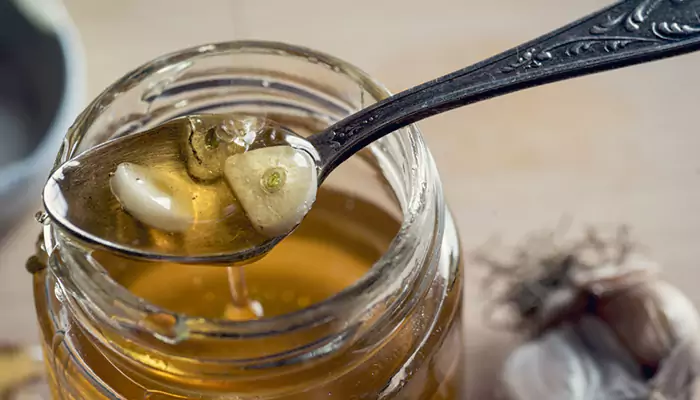Can Garlic Really Eliminate Dandruff? How To Use It for effective results
Garlic, a culinary staple known for its strong aroma and flavour, has been used for centuries not only as a food ingredient but also for its medicinal properties.
- Ishani Karmakar
- 03 April, 2024
- 2 mins ago

Can Garlic Really Eliminate Dandruff? How To Use It for effective results
Garlic, a culinary staple known for its strong aroma and flavour, has been used for centuries not only as a food ingredient but also for its medicinal properties.
Among its many purported benefits, garlic is often touted as a remedy for dandruff, a common scalp condition that leads to flaking and, sometimes, itching. Let’s delve into the potential of garlic to eliminate dandruff and offers guidance on how to use it effectively.
Understanding Dandruff
Before exploring the role of garlic in treating dandruff, it's essential to understand what causes this condition. Dandruff can result from several factors, including dry skin, sensitivity to hair care products (contact dermatitis), seborrheic dermatitis, and the overgrowth of a yeastlike fungus called Malassezia. Managing dandruff often involves addressing these underlying causes.
The Antifungal Properties of Garlic
Garlic is rich in allicin, a compound that forms when garlic is crushed or chopped. Allicin has strong antifungal properties, making it potentially effective against the Malassezia fungus, a common contributor to dandruff. Studies have shown that garlic can inhibit the growth of this fungus, suggesting a direct way through which garlic might help manage dandruff.
Garlic as an Antiinflammatory Agent
Beyond its antifungal capabilities, garlic exhibits antiinflammatory properties. Inflammation is a key component of many scalp conditions, including seborrheic dermatitis, which is closely linked to dandruff. By reducing inflammation, garlic could alleviate scalp conditions and, consequently, reduce flaking.
How To Use Garlic for Dandruff
Using garlic for dandruff involves topical application to the scalp. However, given garlic's potent nature, it's crucial to use it correctly to avoid skin irritation. Here are some methods to consider:
Garlic Oil Treatment
Preparation: Crush a few cloves of garlic and mix them with a carrier oil (like coconut, avocado or olive oil). Let the mixture sit for a few hours or overnight to infuse the oil with garlic's active compounds.
Application: Apply the garlic-infused oil to your scalp, focusing on areas most affected by dandruff. Massage gently for a few minutes to enhance absorption.
Duration: Leave the oil in your hair for about 30 minutes to an hour before washing it out with a mild shampoo.
Frequency: Repeat this treatment two to three times a week for best results.
Garlic and Honey Mask

Preparation: Create a paste by blending crushed garlic with honey. Honey acts as a moisturizer and further enhances garlic's antimicrobial properties.
Application: Apply the mixture to your scalp and leave it on for 10-15 minutes.
Washing: Rinse off the mask with warm water and shampoo as usual.
Frequency: Once a week is sufficient, given the potency of the mixture.
Tips for Using Garlic Safely
Patch Test: Before applying garlic or any garlic-infused product to your scalp, do a patch test on your skin to check for any adverse reactions.
Dilution is Key: Always dilute garlic with a carrier oil or mix it with other ingredients to mitigate potential skin irritation.
Avoid Overuse: Garlic can be quite harsh on the skin, so it's important not to overuse it or leave it on the scalp for too long.
So, does it work?
Garlic possesses antifungal and anti-inflammatory properties that could make it an effective natural remedy for dandruff. Through its active compound allicin, garlic has the potential to reduce the proliferation of dandruff causing fungi and alleviate inflammation associated with scalp conditions. However, it's essential to use garlic cautiously, considering its potent nature and the possibility of skin irritation.
While garlic may not eliminate dandruff for everyone, incorporating it into your scalp care routine could offer benefits, especially for those looking for natural alternatives. As with any home remedy, individual results may vary, and it's always a good idea to consult with a dermatologist if you have concerns about your scalp health or if your dandruff persists despite home treatment.






